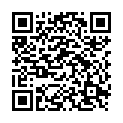|
|
|
| Module code: E602 |
|
|
3V+1U (4 hours per week) |
|
4 |
| Semester: 6 |
| Mandatory course: yes |
Language of instruction:
German |
Assessment:
Written examination
[updated 12.03.2010]
|
E602. Biomedical Engineering, Bachelor, ASPO 01.10.2011
, semester 6, mandatory course, course inactive since 28.11.2013
E602 (P211-0225) Electrical Engineering, Bachelor, ASPO 01.10.2005
, semester 6, mandatory course
|
60 class hours (= 45 clock hours) over a 15-week period.
The total student study time is 120 hours (equivalent to 4 ECTS credits).
There are therefore 75 hours available for class preparation and follow-up work and exam preparation.
|
Recommended prerequisites (modules):
E403 Systems theory
E502 Control Engineering I
[updated 12.03.2010]
|
Recommended as prerequisite for:
|
Module coordinator:
Prof. Dr. Benedikt Faupel |
Lecturer:
Prof. Dr. Benedikt Faupel
[updated 12.03.2010]
|
Learning outcomes:
In this module students will acquire an understanding of digital control systems and of the concepts of controllability and observability. They will learn the terminology, the key control system parameters and the mathematical methods and tools needed to design, set up and optimize digital control systems.
[updated 12.03.2010]
|
Module content:
1.Introduction and fundamentals of digital control engineering
Operating principles of digital control systems Fundamental aspects including
the mathematical description of digital control systems Introduction and
application of the z-transform Functional description and representation of
elementary digital transfer elements
2.Control algorithms for digital control systems
3.State space
Introduction to state-space representation Time-domain solutions to the state
equation Frequency-domain solutions to the state equation Basic mathematical
representations (normal form , diagonal form, Jordan normal form)
Controllability and observability
4.Synthesis of linear control systems in state space
5.Multivariable control
[updated 12.03.2010]
|
Teaching methods/Media:
Lecture notes, PC simulation using Matlab/Simulink, video projector
[updated 12.03.2010]
|
Recommended or required reading:
Unbehauen, H.: Regelungstechnik II; 11. Auflage; Vieweg Verlag, Braunschweig; 2001
Lutz, H.; Wendt, W.: Taschenbuch der Regelungstechnik; 3. Auflage; Verlag Harri Deutsch, Frankfurt/Main 2000
Föllinger, O.: Regelungstechnik; 8. Auflage; Hüthig Verlag, Heidelberg 1994
Föllinger, O.: Laplace- und Fourier-Transformation. Hüthig Verlag, Heidelberg, 1986
Meyr, H.: Regelungstechnik und Systemtheorie. Wissenschaftsverlag Mainz, Aachen, 2000
Leonard, W.: Einführung in die Regelungstechnik; 6. Auflage. Vieweg Verlag, Braunschweig 1992
Ogata, K.: Modern Control Engineering; 2. Auflage. Englewood Cliffs, NJ, Prentice-Hall, 1990
Kuo,B.C.: Digital Control Systems. 2. Auflage. New York, London, Sauders College Publishing, 1992
[updated 12.03.2010]
|


